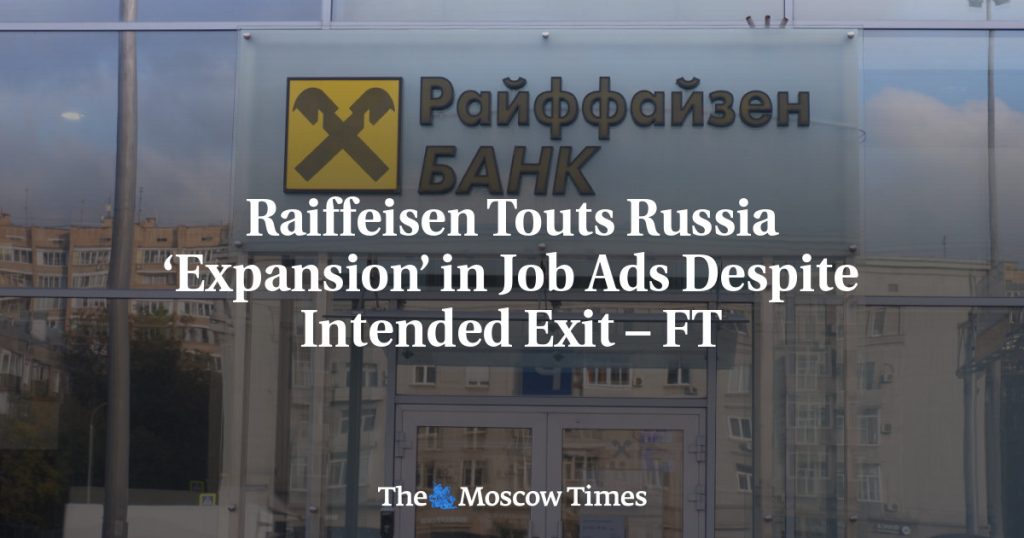Raiffeisen Bank, a major Western lender in Russia, has recently posted thousands of job recruitment ads indicating plans to expand its presence in the country, despite previously announcing intentions to exit. The Austrian bank has placed over 2,400 job ads in Russia since December 2023, citing plans to grow its active client base and expand its corporate client base. However, an internal investigation revealed that these expansion plans were outdated boilerplate information that had not been updated since Russia’s invasion of Ukraine in February 2022.
In response to the Financial Times’ findings, Raiffeisen stated that the recruitment ads do not reflect the measures taken to reduce its presence in Russia, and reiterated plans to continue reducing its Russian business in 2024. The bank has been working on a potential transaction, such as a sale or spin-off, to de-consolidate its Russian subsidiary from the group. The ads, deemed “highly embarrassing,” have been taken down and rewritten urgently to align with the bank’s actual plans and efforts to decrease its Russian operations.
Despite the planned reduction in its Russian business, filings cited by FT showed that Raiffeisen had expanded its staff by 6.6% over two years, from 9,327 employees in late 2021 to 9,942 as of December 2023. A senior Raiffeisen executive stated that it was necessary to keep the Russian business functional in order to attract potential buyers, as the bank has faced difficulties finding interested parties for its Russian subsidiary. The pressure to sell or “spin off” the Russian subsidiary came in response to demands from the European Central Bank and scrutiny from the U.S. Treasury.
The Kremlin has imposed restrictions on Western business exits in response to the mass corporate exodus triggered by the invasion of Ukraine. Raiffeisen’s efforts to reduce its Russian operations are part of a larger trend of Western companies pulling out of Russia due to geopolitical tensions and economic sanctions. The decision to exit Russia or reduce operations has been a challenging process for many Western businesses, as they navigate political pressures, financial implications, and concerns about the impact on employees and customers in the region.
Raiffeisen Bank’s situation highlights the complexities and challenges faced by Western companies operating in Russia, particularly in the current geopolitical climate. The bank’s struggle to find buyers for its Russian subsidiary while simultaneously reducing operations reflects the difficult decisions many companies are grappling with in response to international conflicts and regulatory pressures. The ongoing tensions between Russia and Western countries have created uncertainty for businesses operating in the region, forcing them to reassess their strategies and make tough choices to align with regulatory requirements and geopolitical realities.


